interview by Michael McCarthy
I remember back in the winter of 2013 – 2014 at some point when my artist and photographer friend Josh Bernard first took me to Mill No. 5 at 250 Jackson Street in Downtown, Lowell, Massachusetts. The fourth floor of the mill was being developed into a mall of sorts, an artsy one with all independent, one-of-a-kind shops and studios. There weren’t very many stores open at the time. Aside from Vinyl Destination, I think the only other shops might’ve been Coffee & Cotton, the cafe, and Red Antler, which is now an apothecary but was basically just selling their homemade soaps at the time. In any case, I really liked Vinyl Destination, which had loads of one dollar records. I recall going a little crazy and buying 27 of them that day. Aside from getting an excellent deal on those, I remember thinking the owner, Dave Perry, was a very cool and knowledgeable guy. Whereas some record store owners/employees can be snobs, he was very down to earth and approachable. I enjoyed chatting with him and even interviewed him for Love is Pop in 2016, by which point he’d moved from a very small location to the much larger one – also in Mill 5 — where he remains today. Late last year I decided to re-read that interview and was shocked to find that it was roughly four years old already. Meanwhile, I thought of lots of other questions I wished I’d asked Dave. Easily enough to merit another interview. And so we met up at the shop on Thursday, February 13th, 2020 where the following conversation took place. Except for the Q&A about the High Fidelity TV show from Hulu at the end, which took place via Messenger on the 17th after we’d both had a chance to watch the show.
If you’re a vinyl junkie, you simply must visit Dave at Vinyl Destination sometime soon; store hours are Thursday and Friday, 5-8 p.m., Saturday 11-8, and Sunday, 11-5.
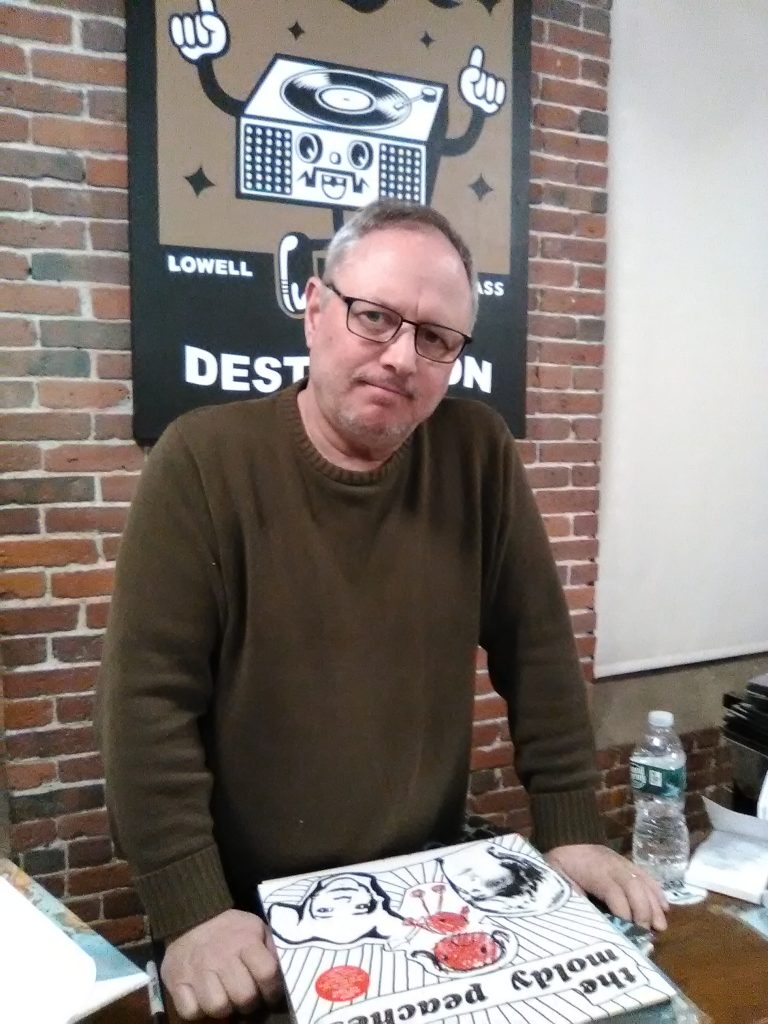
MM: First of all, you’ve been an official Record Store Day location for a while now. Which one was the first one that you did?
DP: I think we’re gonna be doing our third year coming up for Record Store Day. [Holds up R.E.M.’s Green on vinyl.] You mind if I do that? Put that on?
MM: Sure, this recorder is great so it should still come out fine. [Motions to digital recorder.]
DP: Yeah, it’s gonna be the third one. And it’s good. It’s not bad.
MM: What do you have to do to qualify for that?
DP: You have to be a certain percentage of record store as opposed to being a store that sells records and a bunch of other stuff. And we’re 100 percent so that was easy. There’s an application process. They get back to you. And you get listed on the website. You have to have some kind of social media presence also, I believe, which is Facebook for us.
MM: Did you find success doing Record Store Day then?
DP: In terms of money, yeah, it’s pretty good. The first time I think I broke even. The second time I did a little better. The last time I did really well. But it’s a ton of work. I mean, you get the list then you have to order from the list, which is fine, but you’re guessing. Because the list hasn’t gone out public yet, you have no feedback on what people want. Then you order a ton of stuff. And then you hope you get it all. There are some nightmare stories about people not getting it all. I’ve never had a problem. It’s one of those things where you get it a day or two before Record Store Day and you’re pricing furiously and trying to find space for everything and it pays off. I love the way people come in. Even before I was a Record Store Day store, people would hear it was Record Store Day and they would come in and buy something, just to like be supportive. I love that. That’s really nice.

MM: Very cool. Definitely. Did you do that Cassette Store Day that they did?
DP: Mike, I am Mister-non-cassette.
A customer comes in and looks at the inventory on the floor below the racks.
DP: That’s not for sale.
CUSTOMER: No?
DP: No. Not yet.
The customer starts looking at the records that are for sale.
MM: When I re-read our interview from 2016, I was surprised to see that I had asked you if you’d heard about a cassette comeback, that people were talking about it supposedly happening that far back. But it doesn’t seem like much has come from it.
DP: It’s weird. I’ve had people come in looking for cassettes. And I just don’t have them. It’s just not worth it. My space is so limited right now that I just can’t find a place for them or do anything. I’m gonna be doing 45s before I do that. I haven’t understood, personally, what it’s about, although I do know there’s a convenience factor. People with cars that have cassette players. I totally understand that. Now, the new cars don’t even have CD players anymore.

MM: Seriously?
DP: Yeah, most of them – from what I’ve heard – don’t. I don’t have a new car so I don’t know, but… [Both laugh] Cassettes have always bothered me in that I could never tell where a song started or ended. And they stretch over time. I understand why they came about. In the early 60s, it became something where you didn’t have to deal with reel-to-reels anymore. It was a more convenient, compact thing. It was huge back then. But now I’m not sure.
MM: I remember when I was a kid I always bought vinyl but then at some point I switched to cassettes because you could carry them around with you. That was the only appeal.
DP: And the portability of the storage part, too, was good.

which kind of sucked because they’d switch tracks in the middle of songs.
Customers walk in.
DP: Hey folks, if I can help, let me know.
CUSTOMER: All of the dollar stuff is in these crates, right? [Motions to the inventory below the racks like the previous customer had started looking at.]
DP: No, those are not available for anything. The two-dollar stuff is in the hall. It’s all two bucks in the hall.
CUSTOMER: Thank you. [Goes out into the hall to look at two dollar stuff.]
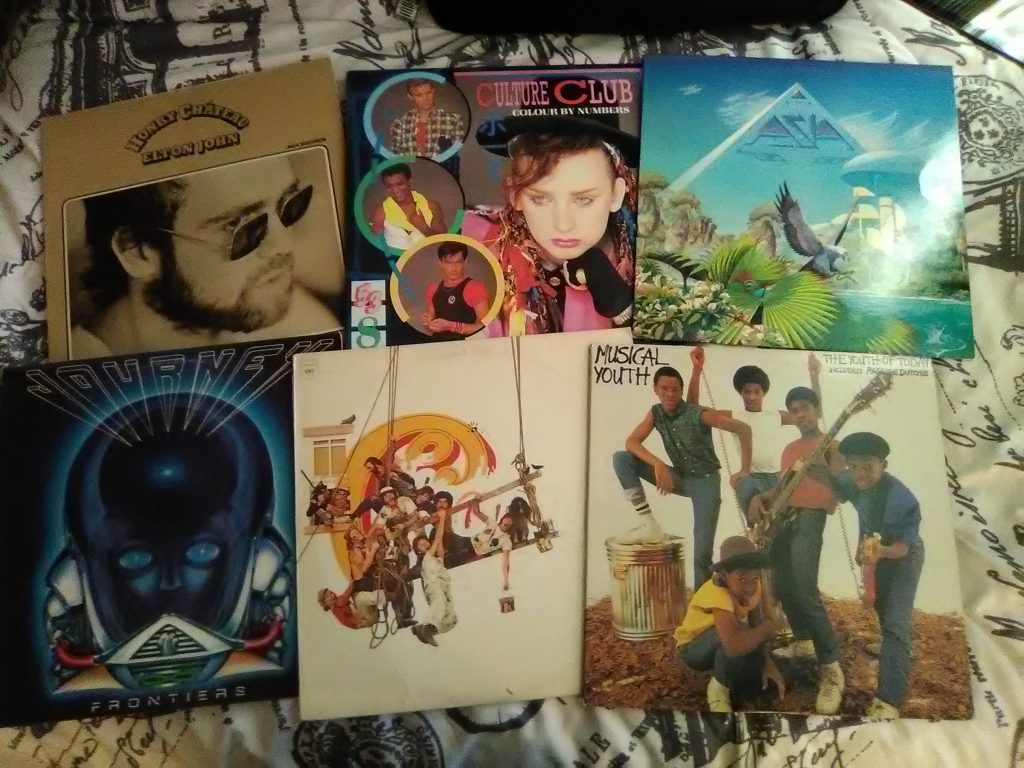
MM: I remember when you opened, you had a seemingly endless supply of one and two dollar stuff –
DP: – Still do. Because the way I buy stuff from people is, I want to buy their whole collection. And that gives me their stuff that’s clearly one and two dollar records. And that’s good to have. I want people to come for those. I want people to be able to buy those. That’s good for everybody.
MM: What size collections do people typically sell you?
DP: There’s some guy who’s gonna come in tonight with fourteen records. They go up to about a couple thousand. I think the largest one I’ve gotten was about three thousand. But I’ve been in a house where there were forty thousand records for sale.
MM: Wow.
DP: That’s overwhelming.
MM: That’s for sure. How many had you accumulated to sell before you first opened the tiny shop you were in when you started here at the mill?
DP: That I had bought for the store?
MM: Yes.
DP: A couple thousand, probably. I think three or four thousand, maybe. I’m not sure. I don’t remember.
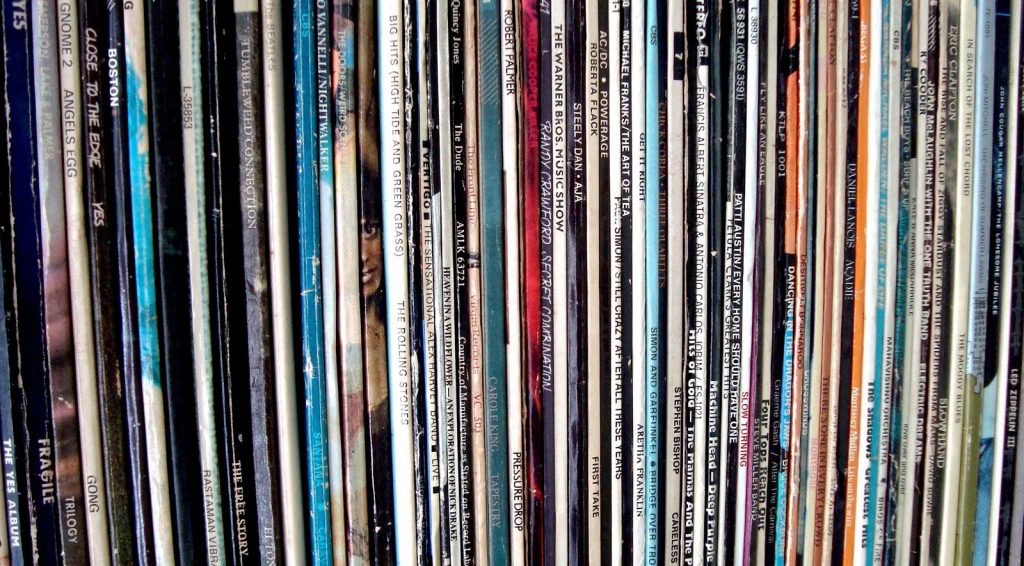
MM: I was just curious if you had a huge storage space somewhere where you’d been stashing them for years.
DP: It’s called my house. [Laughs] I have fifteen thousand records at home. And probably that many CDs as well. Yeah, it’s an issue. But those are mine. They’re not for the store stuff. I do have some over-spill from the store that goes in there first then I try to work it in here. It’s weird. I’ve doubled the space of the store over time and it just seems to fill up really fast. [Both laugh]
MM: Are you happy in this location here at the mill?
DP: I love it. I love it. I couldn’t be happier.
MM: It seems like some vendors here at the mill change locations every six months.
DP: Well, that wasn’t a big thing until fairly recently. The apothecary moved down there because the space was better suited for them. [Motions toward the opposite end of the mill.] Fox, tonight, at One Urban Tribe, her store is now in the corner there because they’re expanding hers over here. So, temporarily, she’s there. The kitchen store moved, too, actually. [Laughs] That’s pretty true. It’s just when spaces open up.
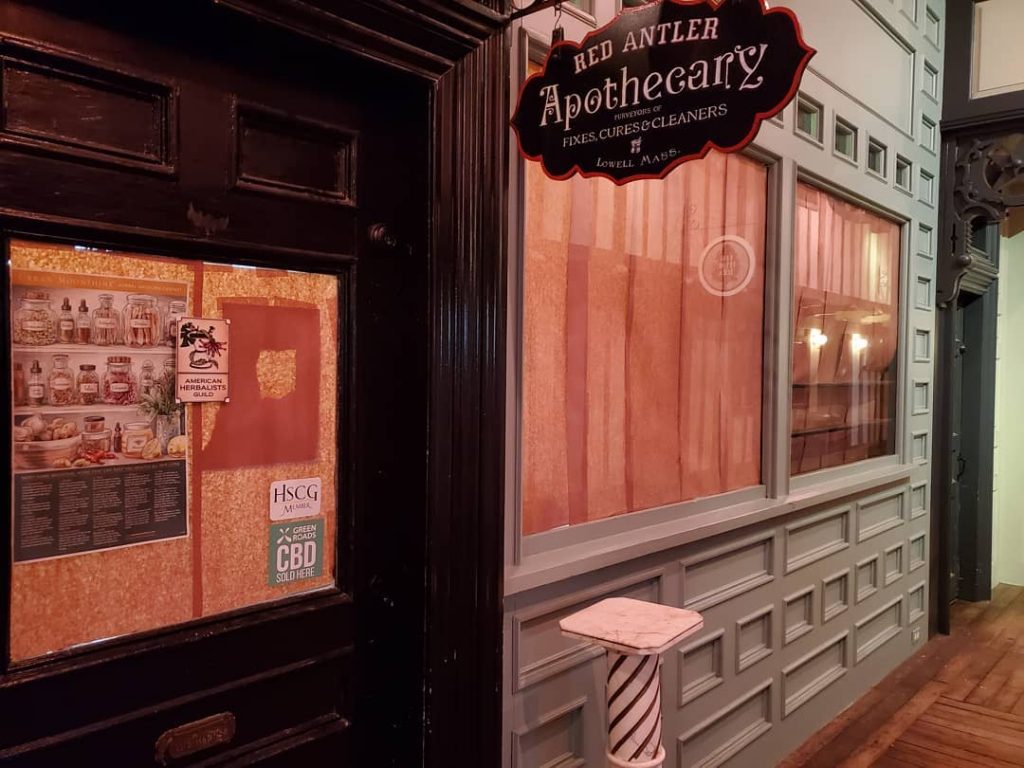
MM: What’s your favorite attraction at the mill aside from your store?
DP: Wow. Including retail stores? I really like the apothecary. I love what they do and that they’re super educated about what they do. They really care a lot about it. So, that’s good.
MM: Yeah, that’s very cool. I love that shop, too. [Note: the actual name of the store is Red Antler Apothecary.] On another note, I still think CDs are gonna make a comeback at some point. Do you?
DP: The thing about that is, I don’t count anything out anymore after records came back. Why wouldn’t they? If they made that direction once, coming back to records, why wouldn’t you do it with CDs? Maybe people will find them more compact and easier to deal with again. Maybe this is just a cyclical thing and everything will keep coming back around a couple generations later.
MM: Even with mp3s and other digital formats, people still want physical product.

DP: There’s a commitment to records that I think people want to have. There’s no commitment to an invisible thing. I think that’s what’s maybe driving some of this.
MM: Do you see vinyl sales still going up or has it plateaued at all?
DP: In terms of our experience, they’re still going up. We did a little better than the year before. I think we might’ve sold more records. Because of the two-dollar records. I have these times where I just sell a ton of them. It’s still going well and the way that I measure it is that they’re still selling tons of turntables. So, that’s kind of a commitment to the format right there for a while anyway. Nobody has asked me about a CD player. Somebody has asked me about a cassette player. But I haven’t been able to help them too much. [Laughs]
MM: The weird thing about that is that there’s this supposed interest in cassettes, but if you go on Amazon, all the decent tape decks people are selling were made at least 20 years ago.
DP: That’s an interesting thing.

Just based on his personal experience with one.
MM: I bought a new one by a brand called PYLE on Amazon for about a hundred bucks about a year ago and it was a piece of trash.
DP: Really?
MM: Yeah. The left side of the deck would only play on high speed like when you do dubbing. And it had no noise reduction at all. Just putting anything on, the noise in the background was [makes a hissing sound].
DP: That’s crazy.
MM: Yeah. It was just a piece of junk. My parents ended up not wanting their Sony tape deck, which was a pretty nice one, so they ended up giving me that. I put the PYLE one out on the curb with a sign that said free just to get rid of it. I couldn’t stand even having it around, taking up space.
DP: It’s weird. A lot of the ’70s and ’80s hardware is so good that it will still work fine.
MM: The only trouble I had was that I had a really nice tape deck and I didn’t use it for a few years and it just died. Apparently, the elastics inside it can harden and break if you go for a really long time without using them. I didn’t know this. So, it just died on me. I turned it on one day and neither side would play or rewind or anything anymore.
DP: That’s crazy. I didn’t know that either.
MM: That said, the one my parents gave me was older than mine and they used it even less often but it still works great. So, I guess it’s also luck of the draw.
DP: [Laughs] Yeah, right. It’s like belts in belt-driven turntables. They’ll just dry up and snap. So, yeah, that’s an issue.
MM: So, do you even have a tape deck as part of your home stereo?
DP: No. To be honest with you, right now I don’t even have a CD player hooked up. It’s all vinyl right now. And that’s because there’s so much of it that I have no excuse. It’s really kind of bad. [Laughs]

MM: Who are some of your best-selling artists?
DP: Oh, I can tell you right away, Fleetwood Mac’s Rumours is by far the biggest selling. Well, I mean, Billy Joel sells. It’s funny, it’s not stuff I would necessarily buy, but people want classic stuff. And those are pretty much stone classic. Durand Jones, we talk up a lot. Whenever I put that record on, someone will inevitably say, what’s that? It’s been that way for three years.
MM: I don’t know if I’ve heard him.
DP: Durand Jones is a modern soul guy on Coalmine Records, an independent label. And it’s as if you were back in 1968. The sound of it. ’60s, ’70s soul. Beautiful. Beautiful. Good songs. Great performances. That kind of stuff. It’s just unbeatable.
MM: Remasters and reissues are a huge part of the record business. Do you find that people more so come in looking for those or for the original pressings?
DP: I don’t know hardly anybody who looks for remasters. Or reissues. It’s something you settle for. People ask all the time, what’s this 180-gram stuff? And I tell them, it’s just the weight of the vinyl. That’s literally what it is. The rest of it depends on what pressing and who mastered it. Is it remastered? Is it tinkered with? So, that’s kind of what it is. I mean, that’s one of the things that makes the original pressings so valuable, that they’re sought after by so many people. They can be hard to find, too, so those two things collide to raise prices.
MM: What about for your own personal collection? Do you buy remasters or do you say to hell with those as a general rule?
DP: If that’s all I can get, I’ll buy it. It’s weird, I don’t sit around in a little, golden room and listen to things that are only this or only that. I love listening to mono, early jazz. And the first [Rolling] Stones records on mono are unbelievable. I love the sound of those things. Mono can be really good. But that’s not all I listen to. I tend to go for the original. The original tends to be the best sound. It’s weird, I wouldn’t spend what some people spend on a record. It’s just not in me.
MM: What’s the maximum price point that you’ll usually go up to?
DP: For me? [Laughs] Oh, you’re good. I’m trying to think of something I really wanted that I spent forty or fifty bucks on. It’s just not a lot. I can’t remember what it might have been. There was an early Nina Simone record called Pastel Blues that I really like and I really wanted for a long time. I think I paid forty bucks for it. But, doing what I do, I have access to stuff that is pretty reasonable.
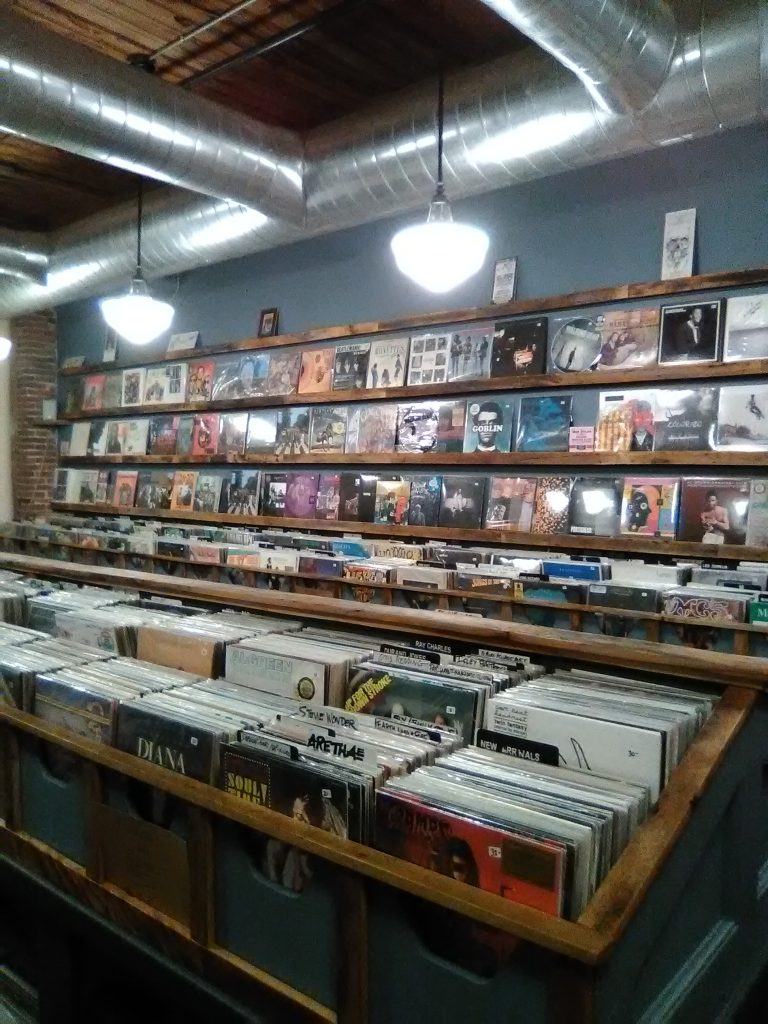
MM: You kind of get it at a discount.
DP: Yeah, I kind of get… It’s pretty crazy. [Both laugh]
MM: Now, is it your son who’s involved in the business with you?
DP: Dan, my younger son, yeah.
MM: Does he work here full-time?
DP: No. He doesn’t work here as much now. He had a son four and a half months ago so he’s been busy with that. Since we started this whole thing, he’s changed jobs. So, he does something that’s very time-intensive. So, it’s me, most of the time, you know?
MM: Sure. Now, do you still work for U-Mass?
DP: I do. I work there thirty-seven and a half hours a week full-time. It pays the bills. And this provides the thrills.
MM: So, you generally enjoy the time you spend here at the store?
DP: Some of my favorite time that I live and breathe is here. I love being here.
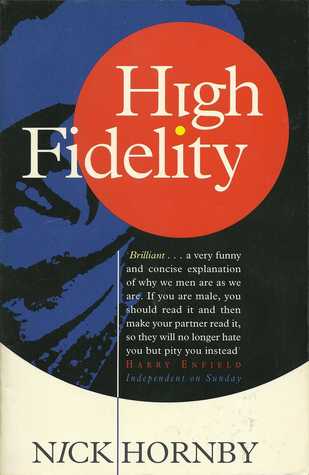
MM: I just found out that they turned the book and movie High Fidelity into a series.
DP: Tomorrow night, it starts.
MM: Are you looking forward to that?
DP: This is really interesting. I love that movie. I don’t know what it’ll be like a second time around. How much they make it for another generation or whatever. But I love that movie and people ask me about it all the time. And I get it. But those guys are so different. I would never make fun of somebody for a record they bought or tell them that sucks or something if they want it. It’s up to them.
MM: I did read that they make fun of the customers again in the series.
DP: They would have to do it on the show. I find it fascinating that Zoë Kravitz is the daughter of one of the original cast members – Lisa Bonet – and Lenny Kravitz is her father and all that stuff. That’s pretty funny. What I also loved about that was that it was a book. A really good book. So, we’ll see.
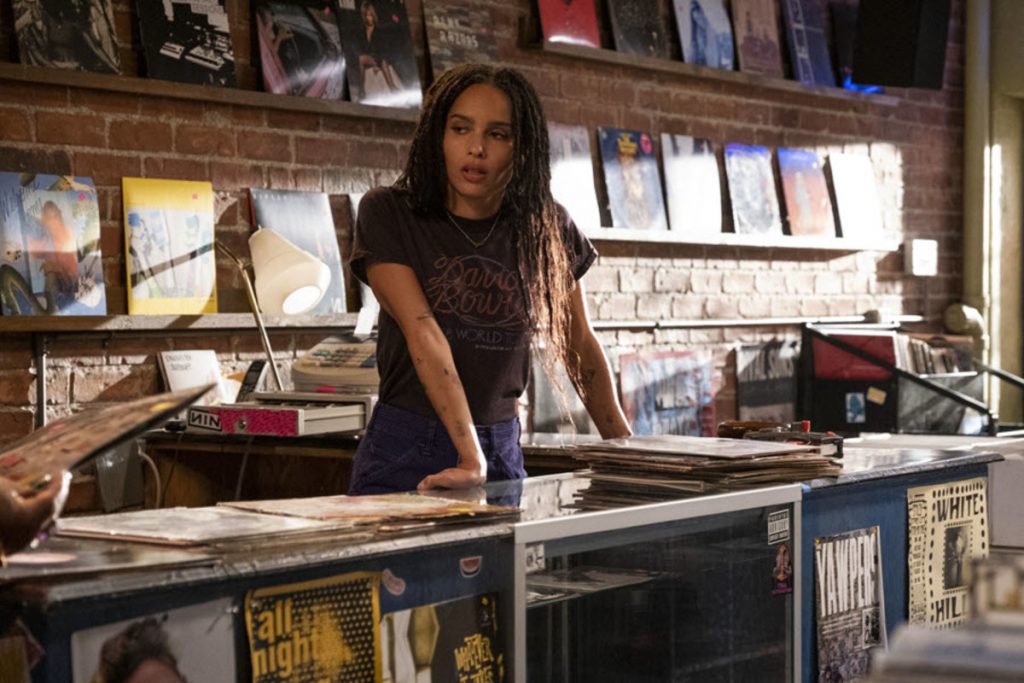
MM: That’s one of my favorite books. Have you read any of Nick Hornby’s other books?
DP: Yeah. About A Boy. And there was another one I read but I can’t even remember what it was called now. He’s done some music collections, too, that are really good. They’re anthologies, almost, of his own stuff.
MM: Did you ever hear that album he did with Ben Folds, Lonely Avenue?
DP: No, I never did. I was aware of it, but I didn’t even buy it for the store.
MM: It’s really, really good. It’s like a regular Ben Folds album except that Nick Hornby wrote all the lyrics.
DP: Well, it’s like Shatner doing something with Ben Folds, too. He’s good at that. He’s good at those collaborations.

at Mill No. 5, Lowell, Massachusetts
MM: I know they have record shows here at the mill that double as donut eateries called That Hole Thing. Was that your idea?
DP: The Hole Thing. And the reason was that I just wanted to get donuts for people who were vendors the first time we did it and then it was like, wait a minute, everybody would really like to have these. We went and got thirty dozen donuts or something from The Donut Shack. And the rest is something that’s become very common now. And we also have other vendors for donuts. The record sellers rotate a little bit, too.
MM: So, is that the exclusive record show here now or do they have others in between?
DP: I think we’re trying to do that two times a year now. I also have my own sale things. I did one about a month ago that was really fun and really good, but, yeah, I think The Hole Thing is probably it.
MM: Have you ever gone through and ripped your whole CD collection?
DP: You mean, put it on the computer?
MM: Yeah. Or do you have no interest in that at all?
DP: No. I’ve never done that. I just figure CDs, putting them in my car in the CD player, that’s good enough. [Both laugh] No, I’ve never done so many digital things. I’m not anti, I’m just not good at it.
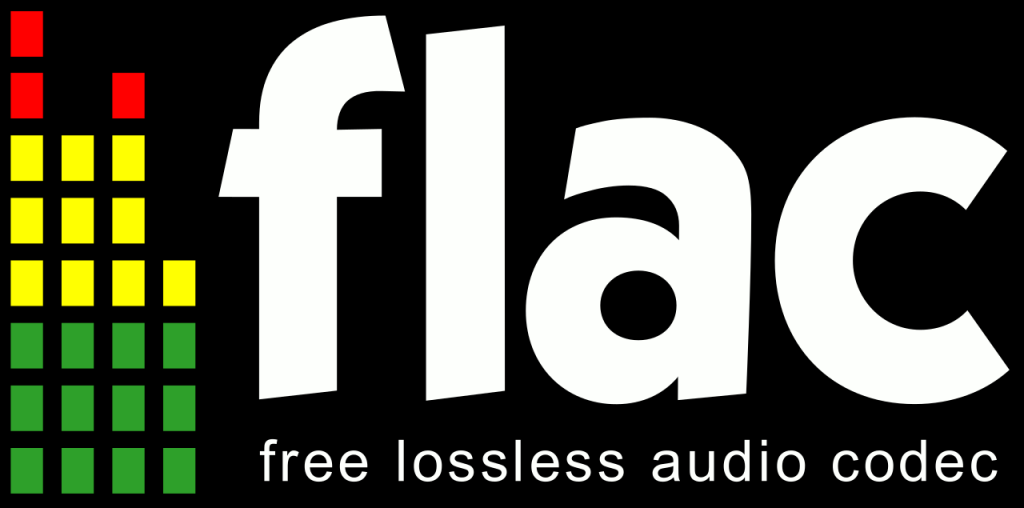
MM: I ripped all my CDs about six years ago, but the quality I was ripping them at was 192kbps, which I really can’t listen to now. If I rip something now, I rip it in lossless FLAC format. When I do listen to mp3s, I can’t listen to anything under 320kbps, which is the maximum quality the format can go to.
DP: [Laughs] You’ve spoiled yourself, Mike.
MM: I know. [Laughs] The only trouble with FLAC is that they’re much bigger file sizes, but you can tell the difference for sure. But you listen to those for a while then you try listening to some shitty 192kbps mp3s you made six years ago and you can’t stand it.
DP: Yeah, there’s a big difference. The technology… That’s the thing with formats. Formats have always followed technological stuff. And that’s still going on.
MM: Name a few albums you own on CD and vinyl?
DP: [Laughs] You’re good. You’re so good.
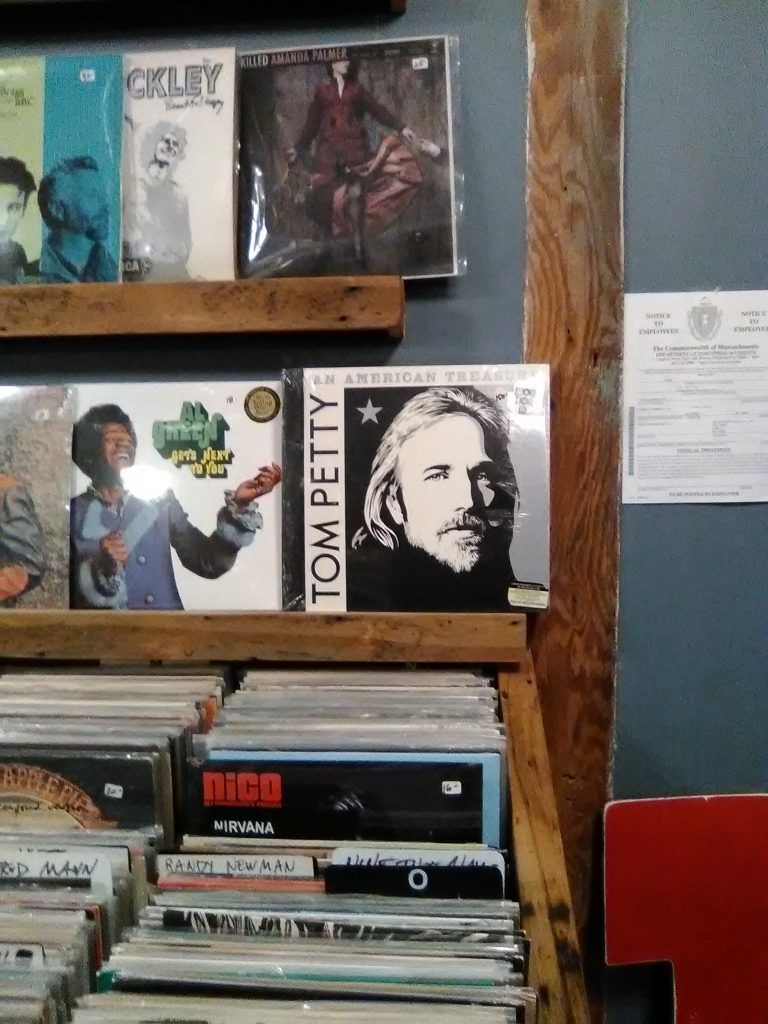
We’re briefly interrupted when two customers approach the counter back-to-back and each buy a two-dollar record from the hall. One pays with a debit card and the other with change, which includes a one-dollar coin a vending machine gave him. I should have noted what they bought but failed to do so because I was engaged in our conversation.
DP (CONT’D): Albums I have on CD and vinyl. Let’s see. I have [George Harrison’s] All Things Must Pass on both. I have Coltrane and Miles Davis on both. That stuff, though, on CD, when you buy it, tends to have more stuff on it. They’re usually expanded versions so it’s easier to do that with. I don’t have to fight [with myself] to do that.
MM: Yeah, if there’s half an album’s worth of bonus tracks then it makes it worth buying something again. Sometimes there’s even a whole album’s worth of bonus content.
DP: Yeah, it’s crazy.
MM: Are there any others?
DP: Black Sabbath’s first record. What else? A bunch of R.E.M. stuff. A friend of mine who passed away, Bill Morrissey, I have all of his stuff on both. That’s just sentimental stuff.
Someone bends over and starts looking at the records on the floor again.
DP: None of that stuff is for sale yet. Sorry.
CUSTOMER: So, stay clear or anything at foot level?
DP: Yeah, sorry.
MM: What would be some of your desert island discs? Assuming the island has electricity and a stereo with a turntable.
DP: [Laughs] No, I hear you. [Both laugh] I’ve got it. But, man, I always stumble on this because it’s like your top ten or whatever. I mean, the first Durand Jones album has made it onto that. Reign in Blood by Slayer would be one. The White Album by The Beatles would be one. Let’s see… There’s a record called Otis Redding Sings Soul. That would be one. The first Led Zeppelin record would be there.
MM: Let me ask you, generally speaking, do you tend to prefer debut albums or stuff artists do later?
DP: I might prefer debut albums. I’m not aware of it if I do. Here’s an example. Mott The Hoople put out a debut album and I’d never heard anything like it so it was the kind of thing that blew me away in a way that hadn’t happened before. So, that record had a special place. Maybe other ones were better, but I never found anything that hit that sentimental spot like that. It’s great. So, maybe I do. I don’t know. It’s an interesting question. Like, Tom Petty – I felt like he did some of his better stuff later. Beastie Boys. I’d be willing to say Paul’s Boutique is their best. It’s not much later, but it’s not their first. And that just changed everything.
MM: What are some albums you put on regular rotation here in the store?
DP: Let’s look… let’s find out. [Opens a drawer behind the counter and starts going through the records there.]

MM: You’ve got a whole secret drawer of them?
DP: No, these are things I have to listen to [in order] to test play sometimes. But lately, it’s been this crazy record, Turkish punk. [Editor’s note: I couldn’t read the writing on the cover.] But this is an example of what we play right now. The Sylvers. [Puts The Sylvers 1972 self-titled album on the counter.] It was a family band. That was like an R&B and funk band, sort of. Kind of like The Jacksons. This is a record that they made that nobody really listened to. In some ways, I want to play things that people don’t know. In other ways, I’m fine throwing on some crazy record that everybody knows. This is a great, great, great record – War On Women. [He puts their 2015 self-titled album on the counter.] It’s a punk record. Hardcore, sort of. It’s very feminist and also just really good. These guys can play.
MM: Is it a new album?
DP: It’s a few years old. It’s a Death Wish release. And they’re so good. When I put it on, I thought nobody would know it, but people will say, oh, yes, I saw them open for Jawbox or Jawbreaker or somebody in the last year.
MM: What was the last concert you attended?
DP: What was the last show I went to? I’m trying to remember. What was the last show I did go to? Shit. This is terrible. The reason why is that I don’t go much. I love live music, but I also hate going to places where there’s – like I will never go to a stadium show. I had to do it for work for years and I hated them. I just hate the whole thing you have to go through to get there. It’s like, they should pay you to go to those things. And I have no interest in seeing seventy-something Rolling Stones. I’ve seen them before. There’s really very little that appeals to me. The stuff that does appeal to me really does, though. Like I’d love to go see Thurston Moore in a small place. It’s gotta be a small place, though. Like the place in Allston – Brighton Music Hall – is a great place.
MM: I was just there the other day.
DP: Who’d you see?
MM: A singer named Poppy. She’s kind of eccentric. But it was good. But the only reason I go to club shows is because where I’m disabled I can call ahead and request a seat. If I had to stand up, elbow-to-elbow, in those crowds, forget it. With my anxiety, I couldn’t do it. Even if I didn’t have a bad back.
DP: I completely understand. That is a huge thing. And people worry about fires and everything.

MM: What are your thoughts on greatest hits albums?
DP: They can be good, but the albums I like tend to be of a piece. They were made when somebody was going through something. Greatest hits album can be good because it’s like, this song, this song, this song, every one of them is good. That’s great. But I don’t listen to music like that.
MM: Yeah, because with regular albums the songs fit together like pieces of a puzzle that are all framed a certain way.
DP: And there are lyrics that might jigsaw together over certain events. It’s never very easy to listen to a best-of album.
MM: And for me, because they master the songs on a greatest hits album to sound like they belong on an album together, it changes how they sound and they’re not like I remember.
DP: Right. It’s inconsistent. That’s a good point. That’s a really good point. I feel like greatest hits albums work best for artists that are really inconsistent. Bon Jovi would have a hell of a greatest hits album, I’m sure, because I don’t listen to his stuff all the way through. Because there tends to be one or two really good songs and that’s it.
MM: When you do look at greatest hits albums, do you prefer them in chronological order or do you prefer it if they arrange them differently like a mixtape?
DP: The chronological thing is such an easy way out. I guess it’s reassuring if that’s what you want. I’d love to see somebody make a little bit of an artistic statement with it. That would be kind of nice. I don’t know how often that happens. [Laughs]
MM: To finish, I was thinking of naming a few popular albums and getting your take on them.
DP: Oh, I love doing that. I don’t know how I’d do with modern stuff, but give it a shot.
MM: Well, they’re mostly classics. Let’s start with Led Zeppelin 2.
DP: Man, that’s a huge record. That was something I went out and bought purposefully when I was a kid. I was fascinated with the cover of it and I was fascinated with the sound of it. And to me and my friends, it was like a breakthrough in a way. Kind of underground. “Squeeze my lemon” and all that stuff was like, woah. But those guys were also like thieves. They stole from everybody from this guy Jake Holmes, who’s an acoustic guy in Greenwich Village, to the blues masters and everything.
MM: And they did a lot of covers, which a lot of people don’t realize.
DP: [Laughs] Because they didn’t credit the original people! But I do love the sound of that record. And if you can get it, there’s the RL version, remastered later by Robert Ludwig from Portland. If you can find that, it’s one of the hottest pressings, it just sounds incredibly alive. It’s like everything is bigger.
MM: One of those rare cases where they did good with the remastering?
DP: Exactly! Exactly. But it was so alive they stopped them from pressing it. So, it’s very rare and desirable now.
MM: The next one you mentioned before, which is The Beatles’ White Album.
DP: That’s probably my favorite record. I’ve always loved that because all their records before that, you’re like, they’re in the studio together and this is great, they’re cooperating and everything. This sounded and felt like four different people making a record. It was, you’d come to learn later, but some of the stuff is so beautiful on it, it’s amazing.
MM: And it’s so diverse.
DP: Diverse and how soulful is that little snippet of “Why Don’t We Do It On The Road”? McCartney did a great vocal. People don’t like that song, but…
MM: What about Guns ‘N Roses’ Appetite for Destruction?
DP: Really good record. But I don’t think it’s one of the greatest records of all-time. I know people do. Widely. There are a couple of great songs on there. “Welcome to the Jungle” is an amazing song. It’s not fair, probably, to talk about what happened after that. When that record came out, it was a huge thing. It was a scene changer. It was a very good record. It was a really good record.

MM: The thing I found really interesting is that I believe it came out over the course of a summer and I was really into hair bands, and they appealed to me in that way, and I immediately liked it. Then I remember going back to school that fall and all these kids who wore pins for The Cure and The Smiths and all that, they had Guns ‘N Roses on their jackets, too. And I thought, wow, how strange is that. That this band has such wide appeal.
DP: Exactly. It did. It was alternative. It was Stones-y. It was all these things at once. It was dirty and gritty. They were like outlaw kind of guys and everything. And there was that weird snake dance that Axl Rose did.
MM: I remember when my friends and I first started listening to it, we thought there was more than one lead singer in the band because he sang so many of the songs so differently from each other.
DP: Yeah, he didn’t screech as much on some of them. There was more of a deeper kind of resolute vocal.
MM: What about London Calling by The Clash?
DP: I just love that record. It’s like the White Album of punk. It really is. It doesn’t sound like people breaking up. It sounds like people exploring. The world was open to them. They were really confident and really able to do a bunch of different things. It was ambitious like nobody was back then in punk. It was crazy good. It was political. It just had everything right, it felt like. I love that record.
MM: One last one. Nirvana’s Nevermind.
DP: There’s another game-changer. It changed everything. Just good, through and through. Diverse. It had different things going on. It introduced the world to one of the great songwriters, really. The sound of it? My God, it was crazy. It was so good. I love that record.
MM: I remember when it first came out I hated it because it was like the end of hair metal.
DP: [Laughs] And it pretty much was. That’s exactly what it did.

MM: That and Pearl Jam’s Ten. Those two albums took off and ended everything. It was weird because I was working third shift at a convenience store that summer and WAAF [a Boston rock radio station] would play Def Leppard’s “Have You Ever Needed Someone So Bad” then the next song would be “Smells Like Teen Spirit” then they’d play something by Extreme then Alice in Chains. But by the time we got to the end of the summer, all the heavy metal stuff was gone in favor of grunge.
DP: You could feel Seattle weaving its way into the popular culture. I had gotten an advance cassette of that [Nevermind] so I had heard it, but to watch it explode was a whole different thing. It was just crazy. And that video – the “Teen Spirit” video, it was just beautiful.
The following exchange took place on 2/17/20 via Messenger:
MM: I just realized all of the albums I asked you about are male-fronted bands. Let’s talk about some female artists.
DP: There are a ton of female solo artists, as well as those who form bands, that I love. Mavis Staples may be my favorite vocalist, and Au Pairs and The Slits were underappreciated bright spots of the punk (and art-punk) movement.
MM: I’ll have to check those out. Who are some of your other favorite female artists?
DP: Alison Krauss? Angelis. Chrissie Hynde? Hellion. Yoko Ono, unfairly reviled and groundbreaking. Carole King…genius. But there are just some albums I find perfect by female artists. Aretha Franklin’s Lady Soul from 1968 is one, and most people don’t realize it’s her 12th record. Finding her voice didn’t come easily. But once she did…this is the album that has “You Make Me Feel Like a Natural Woman,” the Carole King song. Aretha steals it. Just like she did Otis Redding’s “Respect” on another LP. It’s all just right here–the sympatico backing, Jerry Wexler’s production. It’s southern soul personified. That said, so is Dusty in Memphis, the masterpiece by Dusty Springfield which similarly took Dusty (a Brit) down south. And man, her dusky voice just melts into the songs like syrup. Son of A Preacher Man, Breakfast in Bed…every cut. There’s a new 2Lp version due to arrive soon from an amazing reissue company, and it’s remastered by my friend Pete Weiss, who is a Vinyl Destination customer and GREAT guitarist.
MM: I’ll have to keep an eye out for that.
DP: Also, Sandy Denny’s box set Who Knows Where the Time Goes? captures another favorite singer of mine, mostly known for her time with Fairport Convention. She was the goddess of Brit folk, and knew how to sing everything from feel. She could get it on everything from old traditional folk to Dylan, Buddy Holly and …anyone. This box is the only place I can find a stunning song (in demo form) called “By The Time it Gets Dark,” which hits every nerve in my soul.
MM: I’ll have to look for that, too.
DP: Here’s another — War on Women is the band, recommended to me a few years ago by customer Adam Norton. Great punk in the vein of riot grrls, but with a steelier edge. Fiercely political lyrics, ignore at your peril. And you asked about music, but there’s another woman very important to me, a late-night DJ I listened to growing up. Her name was Alison Steele, and she called herself The Night Bird. A good interviewer, a brilliant DJ and a woman who led you by the hand into the dark. I can still hear her voice.

MM: I wish I could remember the names of the DJs I listened to. I guess my favorite wasn’t a DJ so much as an interviewer and that would be the guy who hosted Rockline in the ’80s and ’90s. He might even still be doing it. So, what did you think of the High Fidelity series?
DP: Funny, I never thought of High Fidelity as a movie about a record store as much as I do a movie about an obsessive record store owner who tucks his life and emotions into lists that shift over time. I love the movie, and its record store moments. Do I relate to Rob? On some levels, I guess. I’ve never been a list person but I have certainly confused records with real life, until there was no confusion at all. I am surrounded by them at home and at the store. A shield of sorts. From what I don’t know. The book was damn good, and the movie had Cusack and a good cast. I have watched the series devoutly over the past week and enjoyed it, especially Zoe Kravitz as Rob. Wow! She dug into this, getting both the romantic angst and the music nerd-dom. She gets it. Ending an episode with Ann Peebles’ “I Can’t Stand the Rain” nailed the moment. And it only took until the second episode to include (and name-check) Durand Jones & The Indications. Otherwise, it’s a modern tale of romance, that takes place in a record store. The gender-flipping doesn’t matter at all once you’re into it. I have people ask me all the time if I “relate” to the movie. Sure, a bit. I was always romantically clumsy and unsure. I had records to tell me how to say things I couldn’t myself. But I’ve been happily married for so long I barely remember. Overall, there are other music-themed movies I prefer, including my favorite, Almost Famous, which parallels my life in some ways, and That Thing You Do! which captures a moment in rock where anything seemed possible.
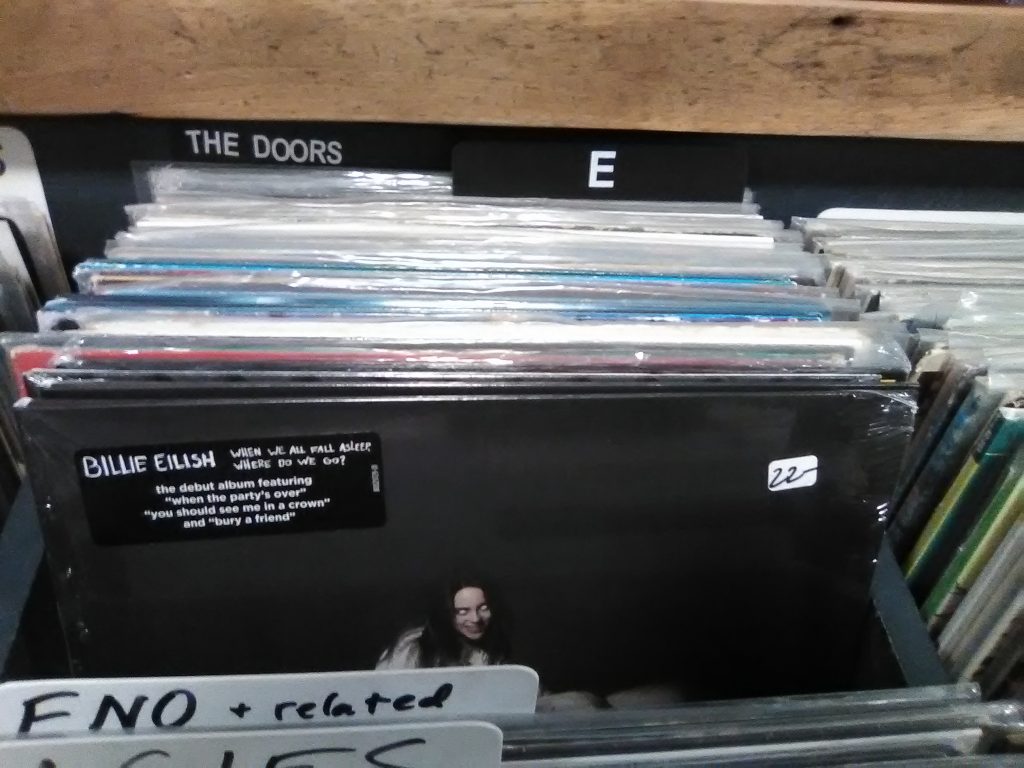
Don’t forget to visit Vinyl Destination in Mill No. 5 at 250 Jackson Street in scenic Downtown, Lowell, Massachusetts.
Vinyl Destination’s store hours are Thursday and Friday, 5-8 p.m., Saturday 11-8, and Sunday, 11-5.
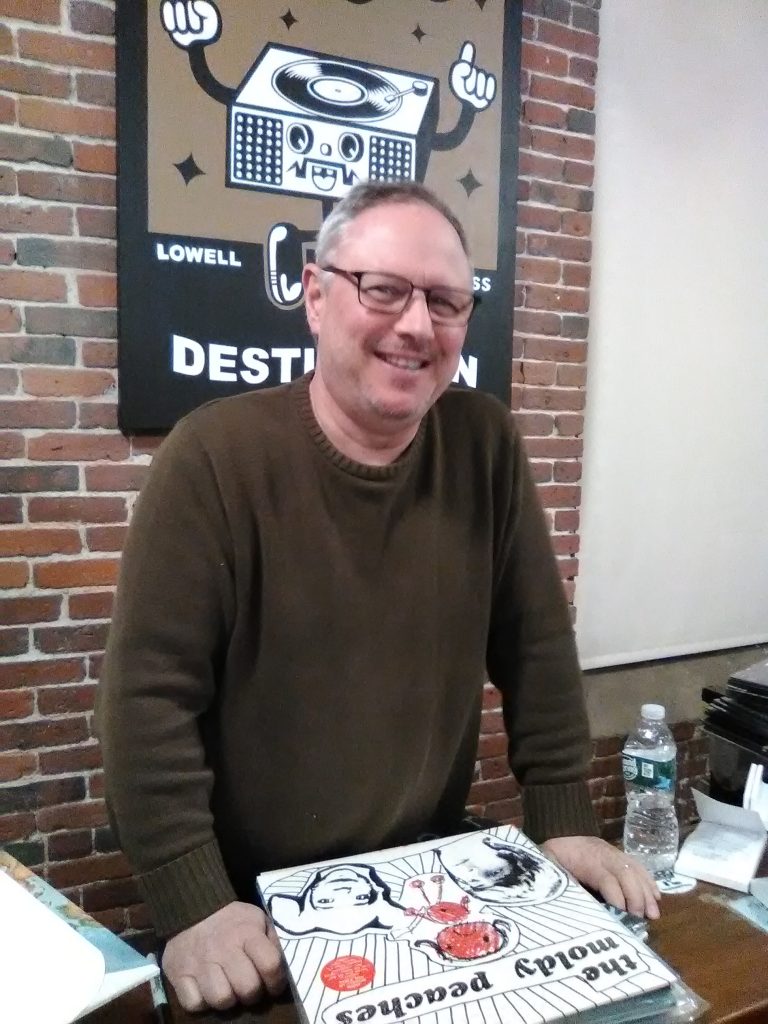

Leave a Reply